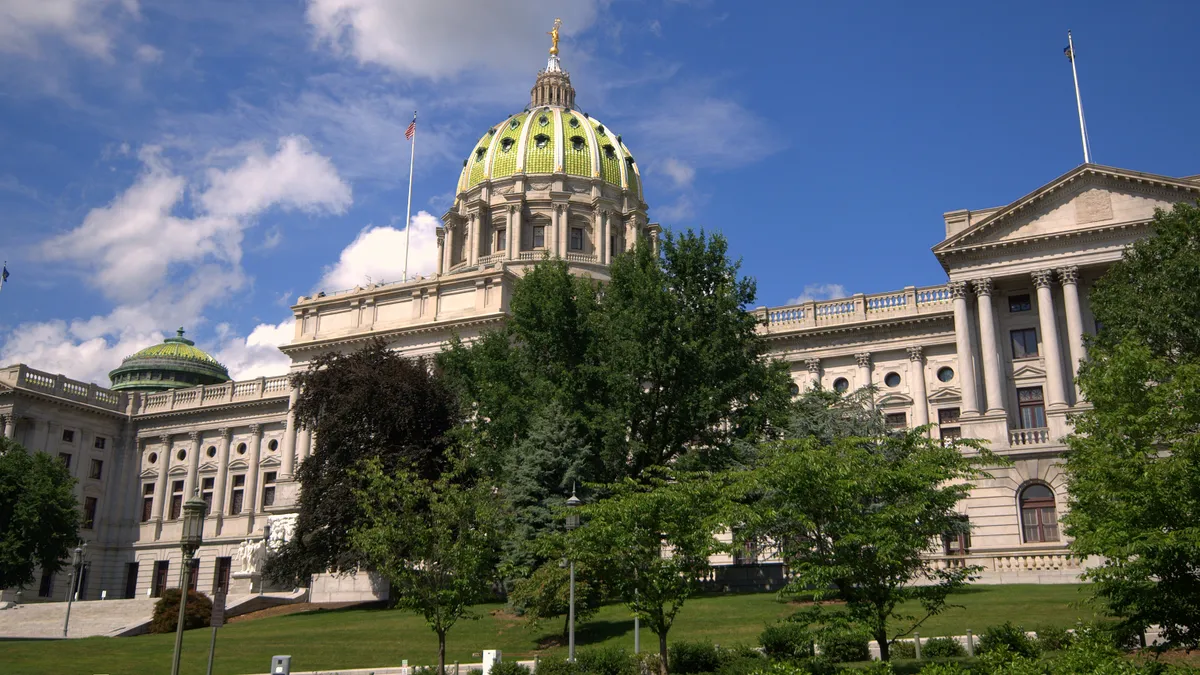Dive Brief:
-
A state lawmaker in Pennsylvania plans to propose a bill that would take away about $580 million in public funding from the University of Pittsburgh and Temple and Penn State universities and devote it to student grants.
-
State Rep. Eric Nelson, a Republican, wants to redirect money from these state-related universities, which receive taxpayer money but function with less oversight from state authorities than traditional public institutions. The grants would be provided directly to students interested in the state's technical schools, community colleges and universities within the Pennsylvania State System of Higher Education, as well as private colleges and "major universities."
-
The $580 million would come from a funding pool earmarked for discounting tuition for state residents. However, the universities don't annually report to the legislature how that money is spent, Nelson said.
Dive Insight:
Some policy observers say the prominence of these state-related schools, particularly Penn State, has been challenging enrollment within PASSHE, which is undergoing consolidation.
Pennsylvania's higher education market is saturated. The state has one of the biggest numbers of public and private four-year schools in the U.S. Policy experts have said the 14 PASSHE schools, many of which are on shaky financial footing, compete for attention with the state-related ones.
A recent report from The Philadelphia Inquirer outlines how the expansion of Penn State's branch campuses in the 1990s, which started adding bachelor's degrees, prompted accusations it was taking away students from existing regional four-year universities. One higher ed pundit in an interview with The Chronicle of Higher Education in 1997 predicted "warfare" among Pennsylvania's colleges following Penn State's move.
Penn State officials deny the charge, saying they've been adding in-demand programs that didn't overlap with PASSHE's offerings.
But in the last decade or so, the PASSHE system's enrollment plummeted about 20%. The drop has been attributed to the competitive nature of Pennsylvania higher ed, but also state funding declines, which eroded the affordability of these schools.
PASSHE's governing board recently approved combining six of its schools into two new entities in light of its financial woes, although officials say no campuses would be closed. They reached the decision despite significant backlash among some students, alumni and faculty members. System officials said the move will free up resources to attract nontraditional students, including those seeking stackable credentials and online options.
Nelson, the lawmaker proposing siphoning away the money from state-related schools, said in a statement Pennsylvania should be reevaluating postsecondary education funding. Sending money directly to students, rather than "select schools," would expand their opportunities, Nelson said.
"Our universities do a great job educating students. Unfortunately, many young people accrue massive debt and are forced to leave the state to find work," Nelson said.
The bill would channel money to existing programs within the Pennsylvania Higher Education Assistance Agency, which administers financial aid to state residents. PHEAA also services student loans for the federal government but is ending its contract to do so.










